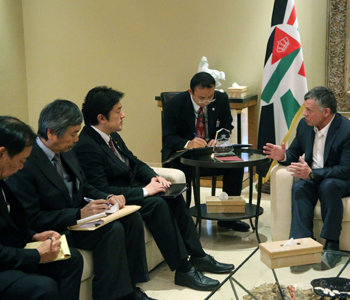Japaneses cold attitude toward the Japanese hostages
Japaneses cold attitude toward the Japanese hostages
Posted January. 23, 2015 07:36,

Only a day before Sunni Islamist militant group Islamic State (IS) said that they would kill two Japanese hostages, people in Japan are hardly offering their sympathy. Rather, they say that it is their responsibility, asking, Why did they go to the dangerous places, putting themselves in such position?
A note on "Yahoo Japan" by visiting professor Ko Nakata at Doshisha University, saying that Tokyo should make humanitarian assistance worth of 200 million U.S. dollars to IS-dominating region, elicited some 120 replies on Thursday. Most of them scolded the Japanese hostages saying that Isnt it their responsibilities? They knew it would be risky but it was their choice to go to Syria, It would be better to provide 200 million dollars to the UN Command to root out the IS. Not a single person expressed the sympathy.
Haruna Yukawa, one of the two hostages who runs a private military company, entered Syria last July to conduct a market research and captured by the IS in August. Kenji Goto, a reporter and an acquaintance of Haruna Yukawa, is known to have entered the country in October to save him.
Most of Japanese people interviewed in Tokyo said, We feel sorry for them but the Japanese government should not spend tax money to save them, stressing that it was their own choice to go the country where the government recommends to refrain from travelling to.
The sentiment of its their responsibilities was also widely expressed in 2004 when three Japanese civilians who entered Iraq for voluntary work were released after they had been kidnapped by a militant group. On their way back home, the three had to lower their head at an airport as if they were criminals.
After the exchange of an Internet message on early Thursday with an IS insider in charge of PR, Japan`s national public broadcasting NHK aired that the IS insider said that they would do what they want to do (unless Tokyo pays ransom).
The Japanese government is known to be suffering from the lack of information. Sources from Japanese Ministry of Foreign Affairs told Sankei Shimbun on Thursday, It is nearly impossible to have unprocessed information. There are also limits in terms of quantity and quality of information. Tokyo closed down Japanese Embassy in Syria in March 2012 for security reasons and its Embassy in Jordan has taken care of relevant affairs since then. For this reason, Japan hardly gets the information on someone in Syria who may have contact with IS insiders.







